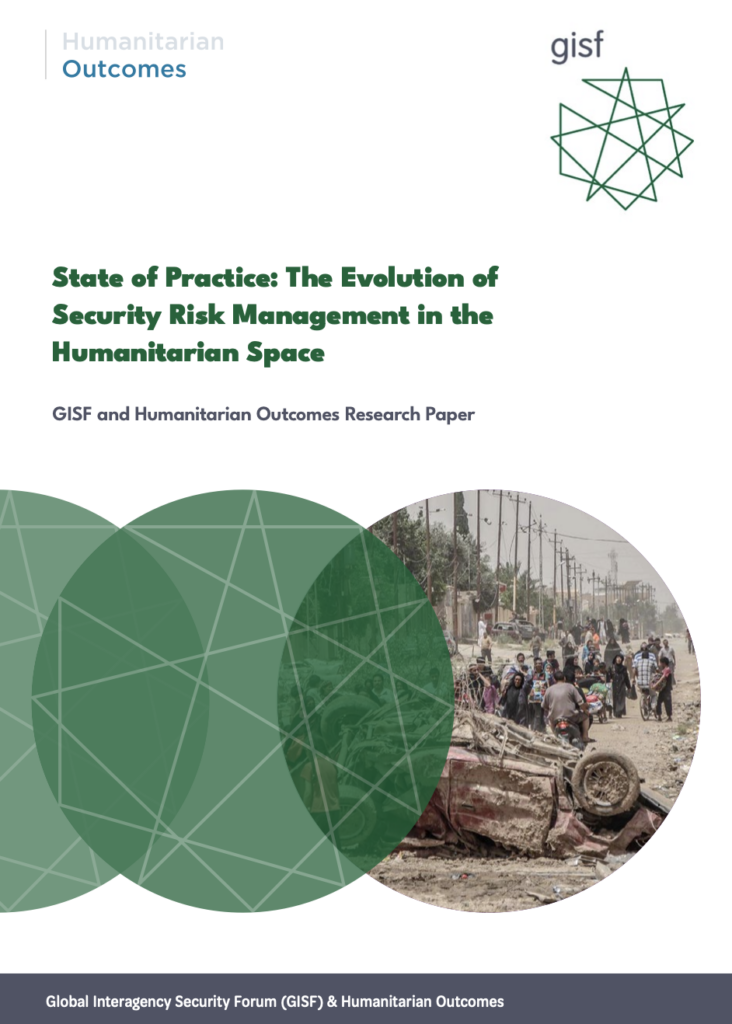As a subject of humanitarian policy and practice, security risk management (SRM) has been an active and growing – yet largely understudied – area of operations. Only a small number of comprehensive, sector-wide analyses of SRM have been published over the past two decades, and none of them are recent enough to cover the significant developments of the past several years.
To address this gap, Humanitarian Outcomes, the Global Interagency Security Forum (GISF), and Humanitarian Practice Network (HPN) have partnered to conduct a global review of SRM in the humanitarian space, under a project funded by USAID’s Bureau for Humanitarian Assistance (BHA). This report, co-authored by Humanitarian Outcomes and GISF, is the first output of this research programme, which will also inform a newly revised edition of the HPN publication Good Practice Review: Operational Security Management in Violent Environments, last updated in 2010.
This study sets out to assess the current state of practice in humanitarian SRM, and whether it is fit for purpose in the changing landscape of humanitarian crises. It documents recent developments, challenges and gaps, and highlights good and promising practices.
The report also identifies recommendations to ensure SRM remains ‘fit for purpose’ to ensure access for crisis-affected populations in the future.
The report aims to be useful for a broad audience of humanitarian practitioners and policymakers, as well as for humanitarian SRM professionals, many of whom provided the evidence and insights used for the analysis.
The findings in the report are based on a mix of qualitative and quantitative methods, including key informant interviews, context-based research, survey data, and a review of relevant literature. These evidence components were augmented by data on aid worker violence, conflicts, and humanitarian sector funding and personnel.
